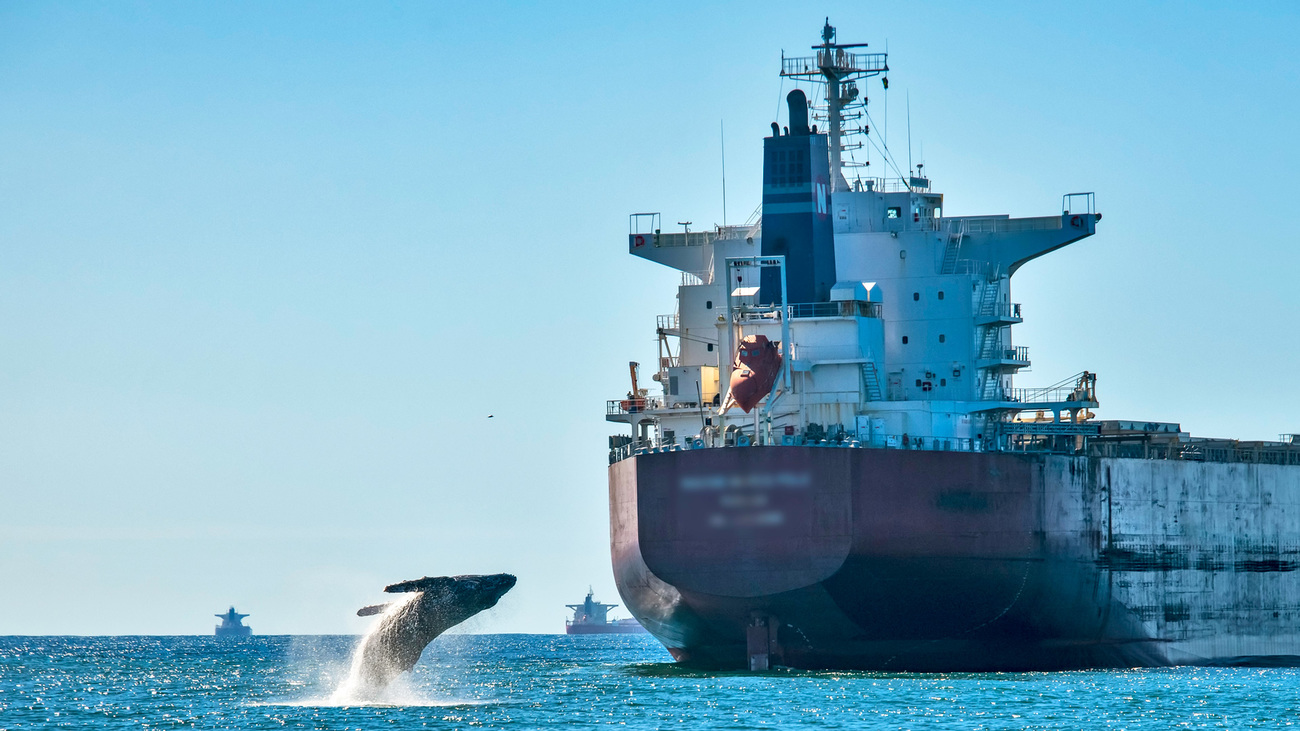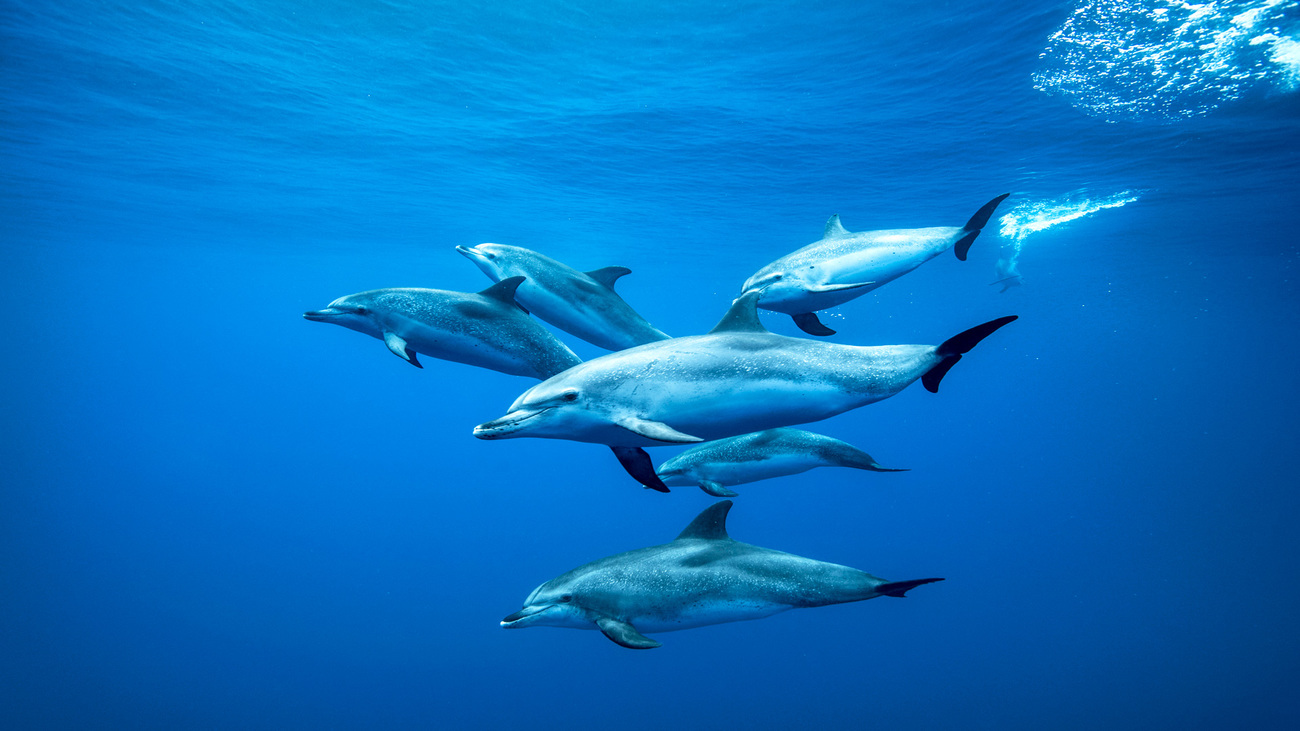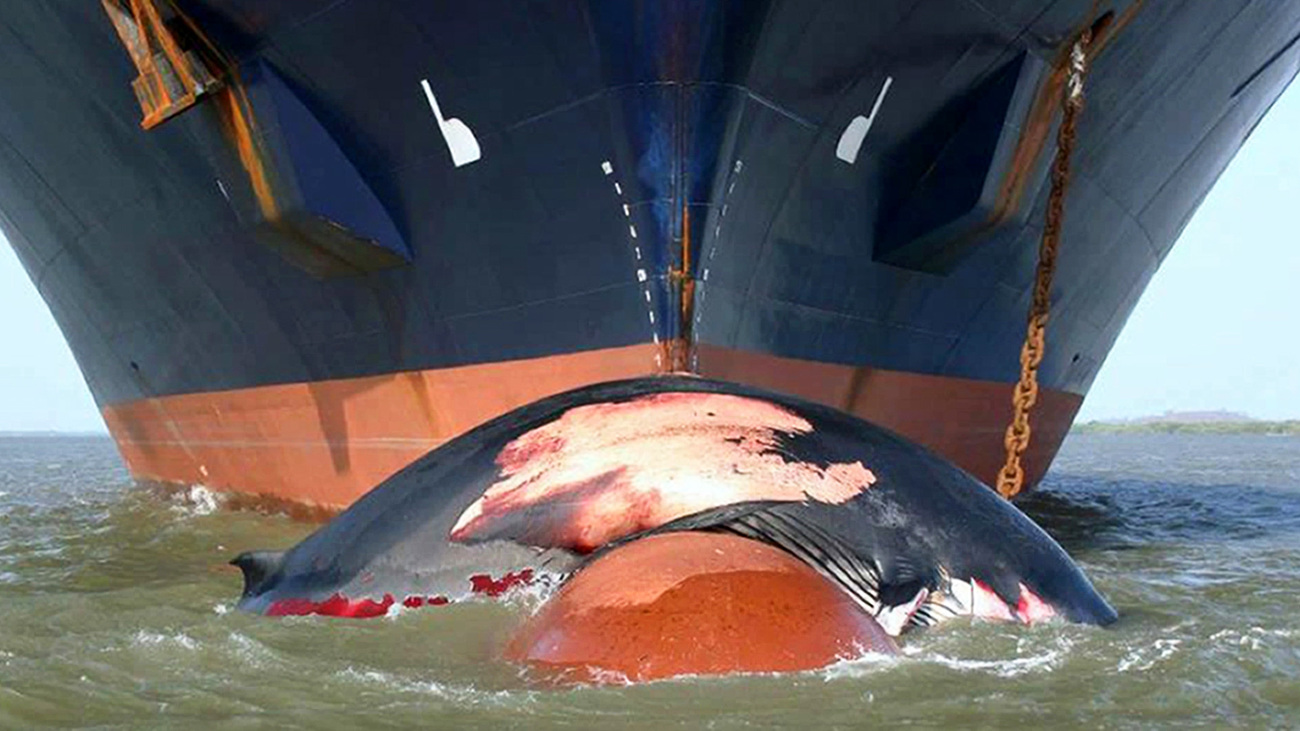Sharon Livermore
One simple way ships can protect endangered whales and tackle climate change
One simple way ships can protect endangered whales and tackle climate change
Imagine standing in the centre of a busy city street during rush hour. Maybe you’re in Manhattan or central London, Tokyo or Johannesburg. You’re trying to find your friend, but the din of activity around you makes it impossible. Horns blare. Engines rev. Brakes squeal.

Shouting your friend’s name won’t help because your voice can’t compete with the mechanical chaos around you, so you use your best technology: your mobile phone. But the noise surrounding your friend is so loud they can’t even hear their phone ring. Maybe they feel it buzz, but when they answer they still can’t understand you over the traffic. You both end up shouting into your phones, confused, increasingly frustrated, and stressed that a simple meetup should become so difficult.
Finally, you see each other, but now you have to make your way across the street without getting hit by a taxi or truck.
That scenario comes close to what marine animals experience as they navigate busy shipping lanes. Animals across the spectrum—from coral to whales—are suffering because of the unending noise of propellers and engines. Those that need to come up to the water’s surface to breathe face the added threat of a ship colliding with them and being severely injured or even killed.
The problem is so significant that for some endangered species—such as the North Atlantic right whale—it could lead to extinction.
But the good news is that there is a simple solution that would make an immediate, tangible difference not only to vulnerable sea life but to the shipping industry, too: slowing down ship speeds.

How does underwater noise affect animals?
Because noise travels so efficiently underwater and the frequency range of noises created by ships overlaps with the frequencies created by whales and other marine life, it creates a constant din that interferes with the ability of these animals to communicate, breed, feed, avoid predators, locate prey, and migrate.
Fundamentally, it changes the way they behave. They may abandon a habitat, become confused, beach themselves or migrate into rivers, or even eat the wrong things. On a BBC radio programme, The Essay, Professor of Marine Biology Steve Simpson describes a study where his team played ship noise to crabs. ‘We put little bits of chopped up mussel into the tank, but also chopped up rubber bands,’ he explains. ‘What we find is that when the crab is in a noisy world, they start picking up rubber bands. They don't really make the right decisions.’
If animals can’t communicate effectively, or if they must make themselves louder to be heard, it also has a tremendous effect on their stress levels.
We know this because of a groundbreaking study conducted by Rosalind Rolland, Emeritus Senior Scientist at the New England Aquarium in Boston. Dr. Rolland and her team were at sea in the Bay of Fundy, Canada, on 11 September 2001. They were performing general research on why North Atlantic right whales weren’t reproducing. But as shipping traffic came to a halt along North America’s eastern seaboard in the wake of the tragic terrorist attacks, Dr. Rolland and her team made an unexpected discovery. As levels of underwater noise dropped by 6 decibels, there was a corresponding fall in the stress hormones found in the whales’ faeces.
Poor communication can also affect animals’ ability to breed—to find what we call reproductive opportunities. If you can’t locate a potential mate because it's too noisy, that’s a big problem, particularly for endangered species with already low reproductive levels. Over the last 80 years, for instance, the distance over which blue whales can hear each other has shrunk from over 1,600 kilometres (1,000 miles) to only 160 kilometres (100 miles) today.
That can be the difference between survival and extinction.
How does ship speed affect marine life?
Vessel strikes are the other big issue, particularly for whales, and the speed of ships is directly related to the likelihood of a lethal encounter with a whale.
Wherever high amounts of shipping activity overlap with large numbers of whales, the probability of hitting a whale is also very high.
You might think that it would be easy for mariners to avoid whales. After all, some whales are up to 20 metres (66 feet) long. But if you're a mariner on a 300-metre-long (1,000-foot-long) ship, whales pale into insignificance.
That's why ship strikes often go undetected. There have been a few gruesome stories recently of ships coming into ports with dead whales stuck across the bow, and that was the first time the mariners knew they had hit a whale.
Whales’ bodies sometimes wash ashore, which gives us an idea of how many whales are being hit by ships. But this is just the tip of the iceberg. Generally, for every one animal that we see has been struck, there are 20 others that go unaccounted for.

What is the solution?
There are certain areas in the ocean where we know a lot of whales are present. In these locations, we’ve worked with shipping companies and governments to slightly re-route shipping lanes away from these areas.
For example, we’ve got some companies to agree to avoid an area near Sri Lanka where the majority of northern Indian Ocean blue whales congregate. One of the largest shipping companies in the world, MSC, has also altered its routes to protect endangered sperm whales in the Hellenic Trench off the coast of Greece.
But the global distribution of whales isn’t predictable. They can be anywhere, so we need a holistic approach that will protect whales wherever they are. That’s why IFAW’s Blue Speeds campaign is calling for a small reduction in shipping speeds.
Research shows that slowing ships down across the global fleet by approximately 10% would reduce risk of a ship strike by 50% and reduce underwater noise by 40%.
On our Blue Speeds website, you can hear what the reduction in noise sounds like. It’s a tremendous difference, especially for these very vulnerable populations in which every animal is vital for the species’ survival.
The good thing about underwater noise is that, unlike other pollutants, once the noise stops, the pollution also stops. It’s not like an oil spill, where you have to undertake a huge cleanup. Similarly, the risk of a ship colliding with a whale immediately decreases when a ship’s speed decreases.
Slowing ships down has an immediate, tangible effect.
How does reducing speed benefit shipping companies, too?
Maritime transport accounts for 3% of global greenhouse gas emissions. The International Maritime Organization (IMO) published a study in 2015 that said the problem would only get worse if not addressed. Secretary-General Koji Sekimizu predicted that ‘by 2050, CO2 emissions from international shipping could grow by between 50% and 250%, depending on future economic growth and energy developments. Therefore, if we are to succeed in further enhancing the sector’s energy efficiency, which is already the most energy-efficient mode of mass transport of cargo, the international community must deliver realistic and pragmatic solutions, both from a technical standpoint and a political perspective.’
Reducing ship speeds is one of those realistic and pragmatic solutions, because when you slow down, you burn less fuel. This is one way shipping companies can meet strict new targets set out by the IMO recently, which make it mandatory for ships to improve their energy efficiency and decrease their emissions.
The shipping industry regularly adjusts its speeds to save money when fuel prices rise. We are simply asking for these reductions to become the norm.
What role can governments and supporters play?
Many shipping companies see the benefit of slowing down or slightly changing their routes to help conserve vulnerable species. They have voluntarily agreed to these changes.
But we need governments and regulators to enshrine these changes in policy.
The European Union’s Marine Strategy Framework Directive is a great example. The EU is the most forward-thinking governing body when it comes to underwater noise. That’s why IFAW’s Blue Speeds campaign is starting with Europe, but we urge leaders around the world to take this issue seriously before any more of our precious marine wildlife loses the battle against extinction.
Help us create a safer, quieter ocean for whales.
Related content
Our work can’t get done without you. Please give what you can to help animals thrive.